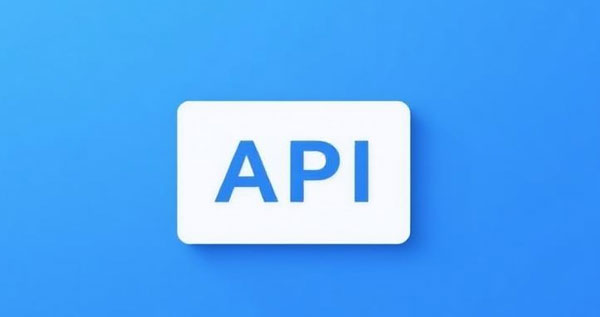Unveiling Influence Through Connections: How to Retrieve TikTok User Following Lists via API
As TikTok continues to dominate the global social media landscape, understanding user behavior goes beyond analyzing video content and comment threads. In fact, the list of accounts a user follows — their Following List — offers critical insight into their social network, interests, and potential interaction patterns. This article introduces how to leverage LuckData's powerful API to retrieve a specific user's following list on TikTok, complete with practical Python code examples and real-world application scenarios.
1. Why Analyze TikTok Following Lists?
In a data-rich ecosystem, it's not enough to know what content a user posts — it's just as important to know who they follow. Here’s why:
Interest Profiling
By analyzing the nature of followed accounts, we can infer a user’s content preferences — such as comedy, travel, education, pets, and more.
Social Network Mapping
If multiple users follow the same accounts, we can identify shared communities, potential social clusters, or even key influencer nodes.
Brand & Competitor Intelligence
Brands can observe which influencers or competitors a user is following, helping inform partnership decisions or monitor rival strategies.
2. LuckData API Overview and Endpoint Details
LuckData offers a stable, easy-to-use API service that eliminates the need to parse TikTok’s UI or bypass anti-scraping mechanisms. One particularly useful endpoint is:
Get User Following List API
Endpoint URL:
https://luckdata.io/api/tiktok-api/pDEXtxVhqnzuKey Parameters:
user_id: TikTok user numeric ID (not the @username)time: Timestamp used for pagination (set to0on first call)count: Number of results to return per request (recommended: 20–50)
3. Python Code: Retrieve the Following List
Here’s how to use Python and the requests library to access this TikTok API and parse the response:
import requests# Replace with your LuckData API Key
headers = {
'X-Luckdata-Api-Key': 'your_luckdata_key'
}
user_id = 107955 # Replace with target user ID
count = 50
time = 0 # Initial request
response = requests.get(
f'https://luckdata.io/api/tiktok-api/pDEXtxVhqnzu?time={time}&count={count}&user_id={user_id}',
headers=headers
)
data = response.json()
for user in data.get("data", []):
print(f"Username: @{user.get('unique_id')}")
print(f"Nickname: {user.get('nickname')}")
print(f"Followers: {user.get('follower_count')}")
print(f"Verified: {'Yes' if user.get('verified') else 'No'}")
print(f"Bio: {user.get('signature')}")
print("---")
Pagination Support
If the response contains "has_more": true, you can increment the time parameter to fetch additional results:
def fetch_all_followings(user_id):time = 0
all_users = []
while True:
url = f'https://luckdata.io/api/tiktok-api/pDEXtxVhqnzu?time={time}&count=50&user_id={user_id}'
response = requests.get(url, headers=headers)
result = response.json()
batch = result.get("data", [])
all_users.extend(batch)
if not result.get("has_more"):
break
time = result.get("time", time + 1)
return all_users
4. JSON Response Structure
The returned JSON typically includes the following data fields for each followed account:
user_id: Unique user IDunique_id: TikTok handle (@username)nickname: Display namesignature: User biofollower_count: Number of followersvideo_count: Number of published videosverified: Boolean indicating verified statusavatar_thumb: Thumbnail image URL
You can tailor your data processing logic depending on your business needs.
5. Use Cases: From Raw Data to Strategic Insight
Audience Overlap Analysis
Compare following lists between multiple users to detect shared affinities, build community clusters, or identify mutual influencer exposure.
Interest Graph Construction
Use NLP techniques to process the bios and content categories of followed accounts, generating a user interest profile graph.
Competitive Research
Track the accounts followed by influencers or competitors to uncover potential partners, marketing inspiration, or strategic focus.
6. Practical Tips & Ethical Considerations
Technical Suggestions
For large-scale scraping, consider using asynchronous requests (e.g.,
aiohttp) and retry logic.Implement data deduplication and local caching to reduce redundant API calls.
Ethics & Compliance
Always respect TikTok users’ privacy and follow platform terms of service.
Avoid using following data to profile individual users without consent.
Prioritize aggregate analysis over personal tracking.
7. Conclusion and Next Steps
Using LuckData’s API to fetch TikTok user following lists offers a unique way to analyze social behavior, content interest, and influencer proximity. It’s a powerful tool for marketers, analysts, and developers seeking to better understand the platform's ecosystem.
Looking to go deeper? Try combining following list data with:
Followers list data
User comment history
Posted video content and performance metrics
By integrating multiple data dimensions, you can build a comprehensive behavioral profile system that informs content strategy, community building, and influencer marketing initiatives.




